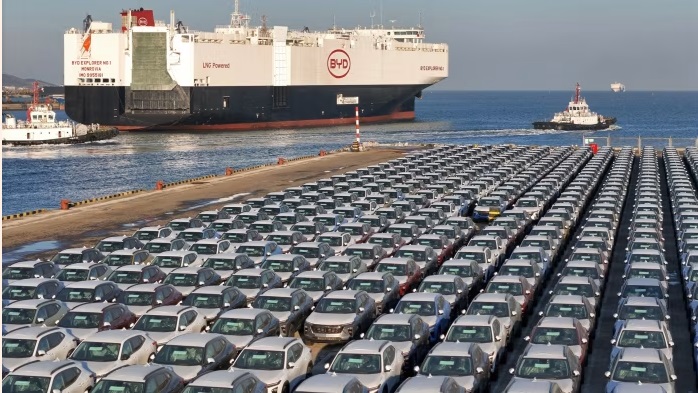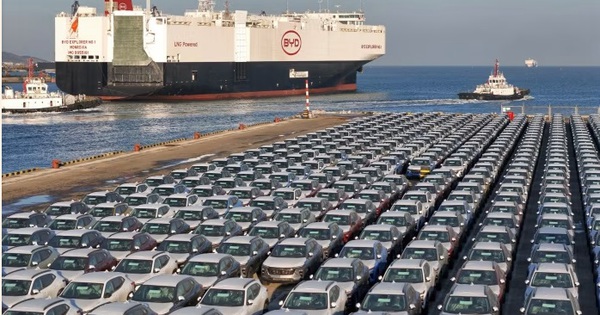Electric Cars Caught in New Battle Between US and China

The Chinese Ministry of Commerce has filed a complaint with the World Trade Organization (WTO) regarding the US subsidies for electric cars, according to the state news agency Xinhua. China’s complaint aims to protect the interests of Chinese manufacturers of new energy vehicles and maintain fair competition in the global new energy automotive industry.
In response, the US has criticized China’s decision, arguing that it goes beyond the issue of unfair competition.
In a statement, US Trade Representative Katherine Tai said, “We are carefully reviewing China’s consultation request. Meanwhile, China continues to use unfair, non-market policies to weaken fair competition and expand the dominance of their own manufacturers in the global market.”
The Chinese embassy in Washington has not yet commented on the information.
While the US statement did not specifically refer to the electric vehicle sector, it mentioned that the US delegation in Geneva had received information that China had submitted a complaint to the WTO regarding provisions in the Inflation Reduction Act (IRA) of 2022.
WTO member countries can file complaints about the commercial activities of other members and seek assistance through the dispute settlement process.
However, many experts assess the actual impact of this complaint as unclear. If the US loses and appeals the ruling, China’s complaint may not achieve any result. This is because the WTO Appellate Body, the supreme court of the WTO, has not been functioning since the end of 2019 due to US obstruction of the appointment of new judges to the panel.
China’s complaint comes several months after the US issued restrictions to reduce the number of eligible electric vehicles for tax credits, ranging from $3,750 to $7,500. According to the new US law, only 13 out of more than 50 electric car models sold in the country qualify for the tax credits. Additionally, as of January 1 this year, electric car buyers do not qualify for tax credits if the vehicle’s parts, components, or batteries are produced by companies from China, Russia, North Korea, or Iran.
In a statement on February 29, US President Joe Biden emphasized, “China’s policies could flood our market with their electric vehicles, posing risks to national security. I will not allow that to happen during my tenure.”
Currently, China is the dominant country in terms of electric vehicle batteries and has a rapidly growing automotive industry, challenging long-established car manufacturers worldwide as they expand globally.
However, China is also facing another issue – excess production capacity due to subsidies. In 2009, the Chinese government designated electric vehicles as a “strategic emerging industry” and implemented subsidies and protective measures. As a result, electric vehicle production has become a cumbersome industry.
According to Asia Times magazine, in 2022, China’s electric vehicle sales accounted for nearly 60% of the global market, reaching 6.9 million units. This has made the domestic market increasingly crowded, prompting more and more Chinese automakers to expand their electric vehicle market to developed countries, including the US and Europe.
Business Today

